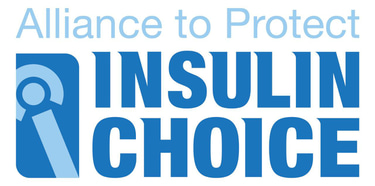MEDICAL ARTICLES


4-Study on weight gain detemir vs. degludec:
3-Weight gain in detemir vs. glargine
Adults taking detemir gained about 1 kg less body weight than those taking degludec (type 1) or glargine (type 2).
The mean weight gain associated with detemir use was significantly less than the mean weight change observed with glargine use. The magnitude of weight change was consistent with that demonstrated in randomized controlled trials. These results further substantiate detemir's purported comparative weight-sparing properties under conditions found in a real-world practice setting.
2-WHO Essential Medicines List 2023 p. 43
Long-acting insulin analogues*
Therapeutic alternatives:
- insulin degludec
- insulin detemir
- insulin glargine
*including quality-assured biosimilars
5-Study on well-documented inferior coefficient of variation of glargine:
"Considering that both long-acting insulin analogs, insulin detemir and insulin glargine, are presented as clear solutions, one might assume that both analogs would be associated with lower variability compared with NPH insulin. However, in a previous trial, no difference could be demonstrated between insulin glargine and NPH insulin (8). In contrast, the within-subject variability was substantially lower with insulin detemir than with both NPH insulin and insulin glargine in this trial. The observed difference in variability between the two insulin analogs may be related to the different modes of protraction. Insulin detemir stays in solution in the subcutaneous depot, in the circulation, and in the target tissues until interacting with the insulin receptor. Insulin glargine on the other hand forms microprecipitates after subcutaneous injection (23), which must redissolve before absorption can take place. Precipitation and redissolution are processes inherently associated with a substantial variability."
6-Comparison of insulin detemir and insulin glargine on glycemic variability in patients with type 1 and type 2 diabetes
"Conclusion: The present study demonstrated lower within-subject variability of insulin detemir compared to insulin glargine, suggesting that the basal insulin replacement with insulin detemir may provide a useful therapeutic strategy for uncontrolled type 1 diabetes with high glucose variability."
7-Description of Lantus Low from Lantus Product Monograph, p. 56 of this version, under "preparing the dose"
Hypoglycemia can result from injection directly into a blood vessel and if not recognized or treated may be followed by hyperglycemia since there was no deposition for long-term absorption.
8-Alarmingly high rates of overweight/obesity in youth were observed within 5 years following type 1 diabetes diagnosis.
Near the time of diabetes diagnosis, 35.5% of youth had BMIs in the overweight/obesity range. These rates increased over time (p < 0.001), with 52.8% having overweight/obesity 5 years after diagnosis. Average age when BMI rose from healthy to overweight/obese or overweight to obese (rise group) was at 12.7 years, occurring 2.5 years after diagnosis.
9-American Diabetes Association Standards of Care in Diabetes - 2024
Glycemic Goals in Pregnancy: Glucose goals are fasting plasma glucose <95 mg/dLIdeally, the A1C goal in pregnancy is <6% (<42 mmol/mol) if this can be achieved without significant hypoglycemia...In the second and third trimesters, A1C <6% (<42 mmol/mol) has the lowest risk of large-for-gestational-age infants (40,43,44), preterm delivery (45), and preeclampsia (1,46). Taking all of this into account, a goal of <6% (<42 mmol/mol) is optimal during pregnancy if it can be achieved without significant hypoglycemia.The physiology of pregnancy necessitates frequent titration of insulin to match changing requirements and underscores the importance of daily and frequent blood glucose monitoring.While many health care professionals prefer insulin pumps in pregnancy, it is not clear that they are superior to multiple daily injections (105,106). None of the current automated insulin delivery (AID) systems approved by the U.S. Food and Drug Administration (FDA) have algorithms set to achieve pregnancy goals.
10-Discontinuation of insulins
Detemir was the 117th most commonly prescribed drug in 2021 with over 5 million prescriptions and 1 million patients in the US.
1-Detemir usage in 2021
Analyzing discontinuation of all 62 insulin products over the past several decades, this article found that not a single discontinuation occurred for safety or effectiveness reasons.
11-RCTs in Type 1 diabetes:
11-15 are Randomized Controlled Trials (RCT) for Detemir in Pregnancy. There are no RCTs for Glargine in Pregnancy. The Only RCT for Degludec in Pregnancy is #16
Glucose outcomes detemir versus NPH. No significant difference in A1c at 36 weeks’ gestation, lower fasting glucose in the detemir group at 24 weeks and 36 weeks. No significant difference in major or minor hypoglycemia. Mathiesen ER, Hod M, Ivanisevic M, Duran Garcia S, Brøndsted L, Jovanovic L, Damm P, McCance DR; Detemir in Pregnancy Study Group. Maternal efficacy and safety outcomes in a randomized, controlled trial comparing insulin detemir with NPH insulin in 310 pregnant women with type 1 diabetes. Diabetes Care. 2012 Oct;35(10):2012-7. doi: 10.2337/dc11-2264. Epub 2012 Jul 30. PMID: 22851598; PMCID: PMC3447831.
12-RCTs in Type 1 diabetes:
Same study as Mathiesen 2012 study Detemir versus NPH. This study presented perinatal outcomes. No difference in perinatal outcomes. The gestational age at delivery was improved by 0.49 weeks in the detemir group.
Hod M, Mathiesen ER, Jovanovič L, McCance DR, Ivanisevic M, Durán-Garcia S, Brøndsted L, Nazeri A, Damm P. A randomized trial comparing perinatal outcomes using insulin detemir or neutral protamine Hagedorn in type 1 diabetes. J Matern Fetal Neonatal Med. 2014 Jan;27(1):7-13. doi: 10.3109/14767058.2013.799650. Epub 2013 Jun 5. PMID: 23617228; PMCID: PMC3862070.
13-RCTs in Type 2 diabetes:
A trend toward improved composite primary outcome and reduced maternal hypoglycemia with detemir versus NPH
Fishel Bartal M, Ward C, Blackwell SC, Ashby Cornthwaite JA, Zhang C, Refuerzo JS, Pedroza C, Lee KH, Chauhan SP, Sibai BM. Detemir vs neutral protamine Hagedorn insulin for diabetes mellitus in pregnancy: a comparative effectiveness, randomized controlled trial. Am J Obstet Gynecol. 2021 Jul;225(1):87.e1-87.e10. doi: 10.1016/j.ajog.2021.04.223. Epub 2021 Apr 15. PMID: 33865836.
14-In mixed group of preexisting diabetes and GDM
After 1 week of treatment, the fasting plasma glucose of the IDet group were significantly lower than NPH group (p<0.05) and the time required to reach the targeted blood glucose level was significantly shorter (p<0.001). After 3 months of treatment, the HbA1c level in the two groups was normalized but there was no significant difference in HbA1c level. Maternal and neonatal outcomes were comparable between the two therapeutic approaches; however, the incidence of hypoglycemia in IDet group was remarkably lower than that of NPH group (p<0.05). The adverse drug reactions were rare and similar between the two groups.
Ji J, He Z, Yang Z, Mi Y, Guo N, Zhao H, Gao J, Ma Z, Luo X, Han Z. Comparing the efficacy and safety of insulin detemir versus neutral protamine hagedorn insulin in treatment of diabetes during pregnancy: a randomized, controlled study. BMJ Open Diabetes Res Care. 2020 Apr;8(1):e001155. doi: 10.1136/bmjdrc-2019-001155. PMID: 32265255.
16-Insulin degludec versus insulin detemir, both in combination with insulin aspart, in the treatment of pregnant women with type 1 diabetes (EXPECT): an open‑label, multinational, randomised, controlled, non-inferiority trial
This study has been used to say degludec is "non-inferior" in pregnant women with type 1 diabetes, yet this study stated in the discussion "Potential trends for an increased risk of preterm delivery, infants born large for gestational age, and pre-eclampsia with degludec were noted." The discussion further states: "the trial was not powered to detect a difference between treatments in the maternal safety and pregnancy outcomes, thus interpretation of these data is restricted. Small cohort studies in real world settings have found a similar prevalence of preterm delivery and large for gestational age with degludec versus other insulins."
The only determinant was the last A1C prior to delivery. Postpartum blood glucose levels were not noted when degludec would be problematic due to its ultra long half life when insulin needs dramatically drop after delivery. Study Link.
15-In GDM and type 2 diabetes-
(43 detemir, 45 NPH,) No differences in perinatal outcomes. There was more hypoglycemia in the NPH group.
Herrera KM, Rosenn BM, Foroutan J, Bimson BE, Al Ibraheemi Z, Moshier EL, Brustman LE. Randomized controlled trial of insulin detemir versus NPH for the treatment of pregnant women with diabetes. Am J Obstet Gynecol. 2015 Sep;213(3):426.e1-7. doi: 10.1016/j.ajog.2015.06.010. Epub 2015 Jun 9. PMID: 26070699.
